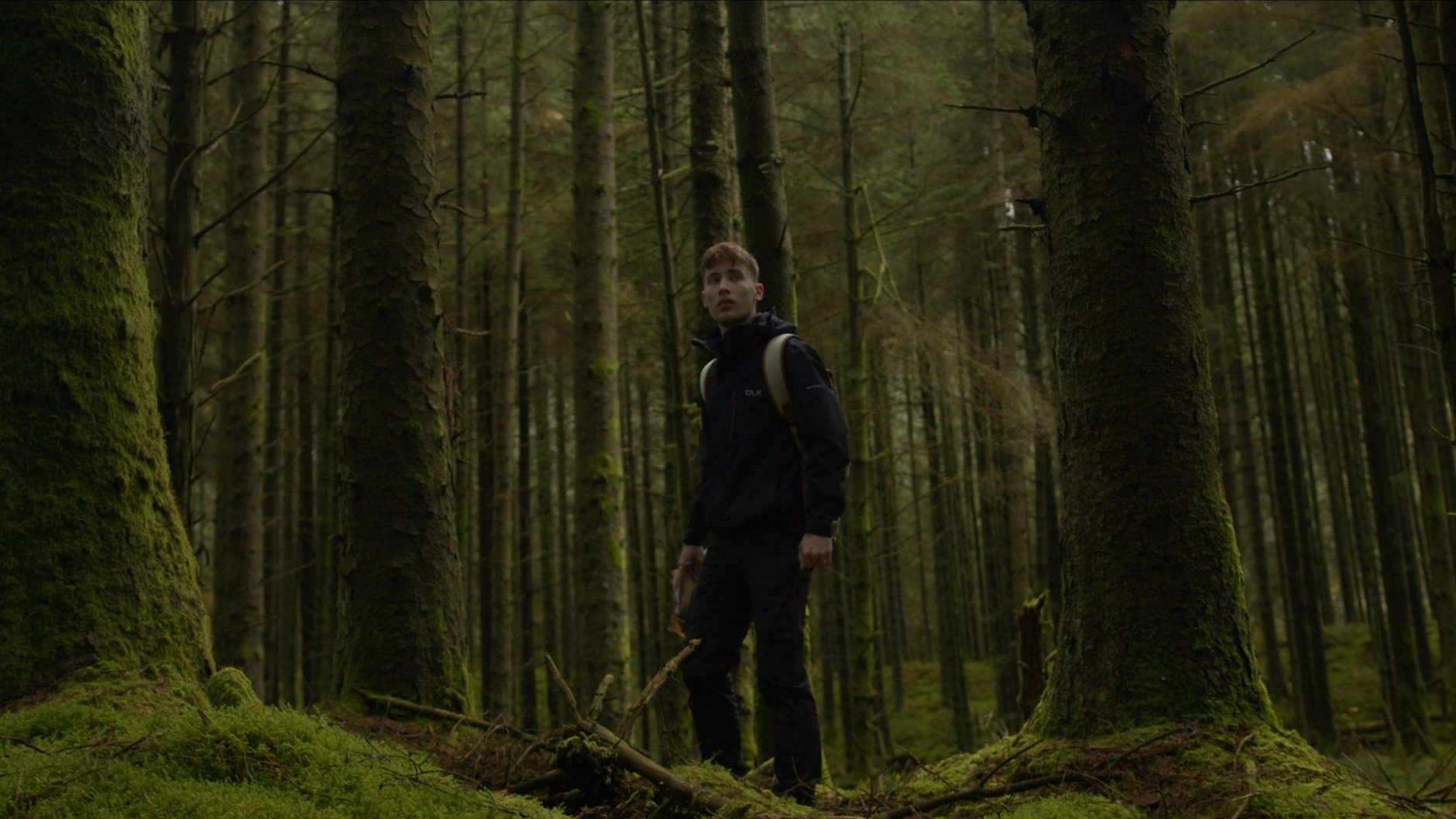Amdani is an award-winning production company born out of a desire to disrupt the conventional framework of filmmaking. Based in Aberystwyth, a rural region lacking traditional screen industries, Amdani has built partnerships with local institutions like the University of Aberystwyth to access renewable energy and infrastructure. Their ethos is rooted in systemic change—rethinking traditional workflows to reduce carbon emissions while improving crew well-being.
“One of the big drivers of climate change is human behaviour. We’re focused on reworking the system to ensure film production can be both efficient and sustainable.”
Amy DanielAmdani Founder
Amdani’s forward-thinking approach prioritizes thorough preparation before production, allowing them to operate with smaller, more agile crews. This strategy reduces the carbon footprint and fosters collaboration across departments. As Amy noted, “We’ve found this method not only lowers emissions but also enhances the creative process, leading to a more unified final product.”
Transition to Sustainable Power
When it came to powering their two-day pilot shoot for The Levels, Amdani turned to the Salt-E Dog, a sodium battery that represents Anton/Bauer’s commitment to sustainability.
The Salt-E Dog, which earned accolades including the winner of The Royal Television Society Technology ‘Innovation Impact’ Award, offers a safer and greener alternative to traditional lithium-ion batteries. It is designed to integrate seamlessly into the high-demand environments of film and TV sets, delivering reliable, silent power without the harmful environmental consequences associated with lithium and diesel.

On the Set of The Levels
During the shoot, the Salt-E Dog provided essential power for lights, monitors, and other on-set equipment. Amdani’s team prioritized the use of second-hand and energy-efficient tools, such as Sony FX3 cameras and LED lights, further reducing their carbon footprint.
“Salt-E Dog powered everything we needed for the entire two days. It was silent and efficient, making it ideal for dialogue scenes and reducing disruptions on set. Even the actors commented on how peaceful it was.”
Amy DanielAmdani Founder
Joe Hadley, Amdani’s sustainability lead, highlighted the importance of the battery’s versatility in the rural Welsh landscape. “We could charge everything in our van during the day and then use the Salt-E Dog wherever needed. Its silent operation was invaluable for maintaining the natural ambiance of our locations.”

Tracking Emissions and Carbon Insetting
As a sustainability-focused production company, Amdani’s commitment extends to meticulous tracking of their environmental impact. Joe used the same methodology as BAFTA’s Albert carbon calculator — a leading tool in the film industry — to track the production’s environmental impact and report emissions to Media Cymru, ensuring accurate measurement and appropriate offsetting. Albert considers a wide range of factors, including energy use, transport, materials, and even costumes, providing a comprehensive picture of the carbon footprint.
Joe explained the process: “We input all data—from mileage and energy consumption to the sourcing of materials—into the Albert calculator. This allows us to quantify the carbon impact for each element of the production and estimate what it would look like on a larger scale.”
The Salt-E Dog proved invaluable in this regard. Equipped with onboard data-logging capabilities, the battery recorded detailed energy usage throughout the shoot. This functionality streamlined the process of tracking emissions and provided precise data that could be integrated into Albert’s calculations.

“One of the challenges in sustainability is keeping up with on-the-ground data while managing production. The Salt-E Dog simplifies this by capturing energy use automatically, giving us a reliable foundation for analysis. Everybody will notice if there’s no power, so it’s extremely important.”
Joe HadleySustainability Lead
Amdani also embraces carbon insetting as a strategy for creating a circular economy within their supply chain. Unlike traditional carbon offsetting, which often involves planting trees in distant locations, carbon insetting focuses on reinvesting in local resources. For example, Amdani supports local suppliers by helping them transition to electric vehicles or more sustainable practices.
“This approach reduces emissions for future productions,” explained Amy. “It’s about creating immediate, measurable impact within the communities and ecosystems we work with.”
Building a Sustainable Future
Amdani’s work serves as a model for systemic change in film production. By combining cutting-edge technology like the Salt-E Dog with innovative workflows, they are proving that sustainability and creativity can go hand in hand.
Joe articulated the significance of their efforts: “We’re trailing approaches that demonstrate how sustainability can be integrated into every aspect of production. Our goal is to inspire larger companies to adopt similar models and create a ripple effect throughout the industry.”
The Salt-E Dog’s role in this journey highlights its potential as a game-changer for the industry. By providing clean, safe, and efficient power, it is setting a new standard for on-set energy solutions. Amy summed up the experience:
“The Salt-E Dog has shown us what’s possible. It’s not just about reducing our impact; it’s about showing that sustainable filmmaking can be just as effective—if not better—than traditional methods.”
Amy DanielAmdani Founder
As the industry continues to evolve, collaborations like this are paving the way for a future where sustainability is no longer an aspiration but a standard.

